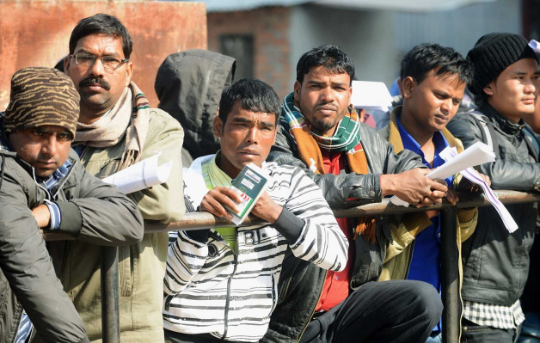Reform in the Kafala System: An Assessment
Nazmul Haque | 21 April 2021
The kafala (sponsorship) system, the system used in the Gulf Cooperation Council (GCC) countries to regulate the employment of foreign workers, has long been criticised by the migrants rights advocates. The kafala system allows the employer to confiscate the passport and other documents of the migrant worker and bars the latter from changing jobs or leaving the country without the permission of the former. The system thus fosters the condition for exploitation and abuse of migrant workers (Khan & Harroff-Tavel, 2011). It puts the migrant labourers in a situation that is termed by many rights groups as ‘modern-day slavery’ (Finn, 2016).Kafala contradicts various international conventions like the Universal Declaration of Human Rights (UDHR) and Convention on the Elimination of all Forms of Discrimination against Women (CEDAW).
Amid the criticism, some GCC countries have vowed to abolish or modify the system many a time but have done little so far. The issue received renewed attention recently when news on the exploitation of migrant workers working in the construction projects linked with World Cup 2022 began to float in international media. International Trade Union Confederation (ITUC) blamed the malevolent Kafala system for the exploitation of workers and called upon FIFA to put pressure on Qatar to reform this malicious system (Amnesty, 2019).A recent report published by The Guardian has stated that more than 6,500 migrant workers have died since Qatar was selected to host the Football World Cup-2022 (The Guardian, 2021).
However, Qatar brought a change in its law in September 2018 which would allow the majority of migrant workers to leave Qatar without permission from their employers. However, the section of the workers who are not covered by Qatar’s labor law, such as the country’s 174,000 domestic workers, are exempted from the new law (Rebecca, 2018).
Kuwait eased one major constraint of the kafala in 2011 by allowing foreign employees to change employers without their consent. The domestic workers were, however, exempted from the advantage and later the government added a condition that the migrant worker needs to wait three years before being legally allowed to change employer.A similar change was made by Bahrain where workers were allowed to change employer but had to wait one year (WARBE, 2017).
Other GCC countries stayed away from reforming the kafala system and initiated a few modest attempts to lessen the migrants’ exploitation instead.For example, Jordan and Lebanon introduced a standard contract and Saudi Arabia developed Musaned, an online complaint application, for domestic workers(WARBE, 2017).In a recent development, Saudi Arabia has eased a significant restriction in its kafala system which now allows private-sector workers to change jobs and leave the country without an employer's consent (BBC, 2020).
It, therefore, appears that the reform initiatives taken by some of the Middle East countries concerning the kafala system are only limited in modifying some elements of the system while others are unwilling to change the system at all.
The migrants’ rights activists who initially called for the abolition of the kafala system, are now advocating for reform of the system(Khan & Harroff-Tavel, 2011). They are now increasingly adopting an approach that calls for incremental reforms aimed at removing the most restrictive elements of the kafala, such as the lack of labour mobility. They hope that these changes will pave the way for further reforms and will help to create a situation where the governments will pay more heed to the demands of migrant workers.This approach of incremental change seems to be practical in the context of the comparative strength of labour receiving countries vis-a-vislabour-sending countries. However, unity among the labour-sending countries might increase their bargaining power which in turn can go a long way in reforming the kafala system.
Nazmul Haque, Coordinator, Research and Development, CGS.
Views in this article are author’s own and do not necessarily reflect CGS policy.
